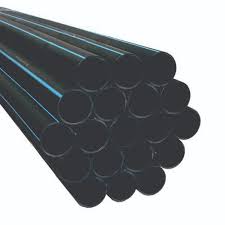Oct . 13, 2024 13:31 Back to list
PPR Pipe Cost Analysis and Service Solutions for Optimal Budgeting
Understanding PPR Pipe Cost Services
In the realm of plumbing and construction, cost efficiency and material durability are paramount considerations for both professionals and consumers. One such material that has gained significant traction in recent years is Polypropylene Random Copolymer (PPR) pipe. This article delves into the cost service aspects of PPR pipes, exploring their benefits, applications, and the overall value they provide in various projects.
What is PPR Pipe?
PPR pipes are made from a type of thermoplastic polymer known for its impressive strength, resistance to high temperatures, and chemical inertness. Due to these properties, PPR pipes are widely used for hot and cold water supply systems, as well as in industrial applications. The random copolymer structure of PPR enhances its flexibility and fusion welding capabilities, making it an attractive option compared to traditional piping materials like PVC and metal pipes.
Cost Considerations for PPR Pipes
When considering the cost of PPR pipes, it is essential to factor in not only the initial investment but also the long-term savings associated with their use. Here’s a breakdown of cost-related aspects
1. Material Costs PPR pipes generally have competitive upfront costs when compared to other materials such as copper or HDPE (high-density polyethylene). The prices can vary based on the diameter, pressure class, and manufacturer. As the demand for PPR increases, economies of scale may further reduce costs.
2. Labor Costs Installations of PPR pipes are typically quicker and simpler than traditional piping systems. The fusion welding process used in PPR installations eliminates the need for additional fittings, thereby reducing labor costs significantly. Skilled labor can complete installations in a shorter time frame, leading to overall reduced project expenses.
3. Maintenance Costs One of the most compelling advantages of PPR pipes is their low maintenance needs. PPR is resistant to corrosion and scaling, which are common problems with metal pipes. This durability means fewer repairs and replacements, resulting in long-term savings for homeowners and businesses alike.
ppr pipe cost service

4. Energy Efficiency PPR pipes have excellent thermal insulation properties, which help maintain the temperature of liquids transported through them. This means that less energy is required to heat or cool water, making PPR systems more energy-efficient in the long run.
Applications of PPR Pipes
PPR pipes are versatile and can be used in a variety of applications, from residential plumbing to large-scale industrial systems. Common uses include
- Hot and Cold Water Supply Ideal for residential and commercial plumbing, PPR pipes handle both hot and cold water with ease. - Heating Systems PPR pipes are suitable for radiant floor heating and other heating systems due to their ability to withstand high temperatures. - Industrial Applications Their chemical resistance makes PPR pipes an excellent choice for transporting various liquids in industrial settings, including chemicals and food products. - Irrigation Systems Many agricultural applications benefit from the durability and flexibility of PPR pipes, which can withstand the rigors of outdoor installation.
Choosing the Right PPR Pipe Service
When selecting a service for PPR pipe installation, it is crucial to consider the expertise and reputation of the provider. Look for companies that offer comprehensive services, including material supply, installation, and aftercare. Always seek out customer reviews and case studies to gauge the quality of service provided.
Additionally, inquire about warranties and support services that may accompany the installation of PPR systems. A reliable service provider should ensure that their products meet industry standards and regulations to safeguard the longevity and performance of your plumbing systems.
Conclusion
PPR pipes represent a cost-effective solution for a wide range of plumbing and industrial needs. Their competitive pricing, ease of installation, and maintenance efficiency make them a favorable choice for many projects. By considering both the immediate and long-term cost benefits, consumers and professionals alike can make informed decisions that lead to efficient, sustainable, and durable plumbing solutions. As the construction industry continues to evolve, PPR pipes are likely to remain a staple in modern infrastructure.
-
High-Quality PVC Borehole Pipes Durable & Versatile Pipe Solutions
NewsJul.08,2025
-
High-Quality PVC Perforated Pipes for Efficient Drainage Leading Manufacturers & Factories
NewsJul.08,2025
-
High-Quality PVC Borehole Pipes Durable Pipe Solutions by Leading Manufacturer
NewsJul.08,2025
-
High-Quality PVC Borehole Pipes Reliable PVC Pipe Manufacturer Solutions
NewsJul.07,2025
-
High-Quality UPVC Drain Pipes Durable HDPE & Drain Pipe Solutions
NewsJul.07,2025
-
High-Quality Conduit Pipes & HDPE Conduit Fittings Manufacturer Reliable Factory Supply
NewsJul.06,2025

